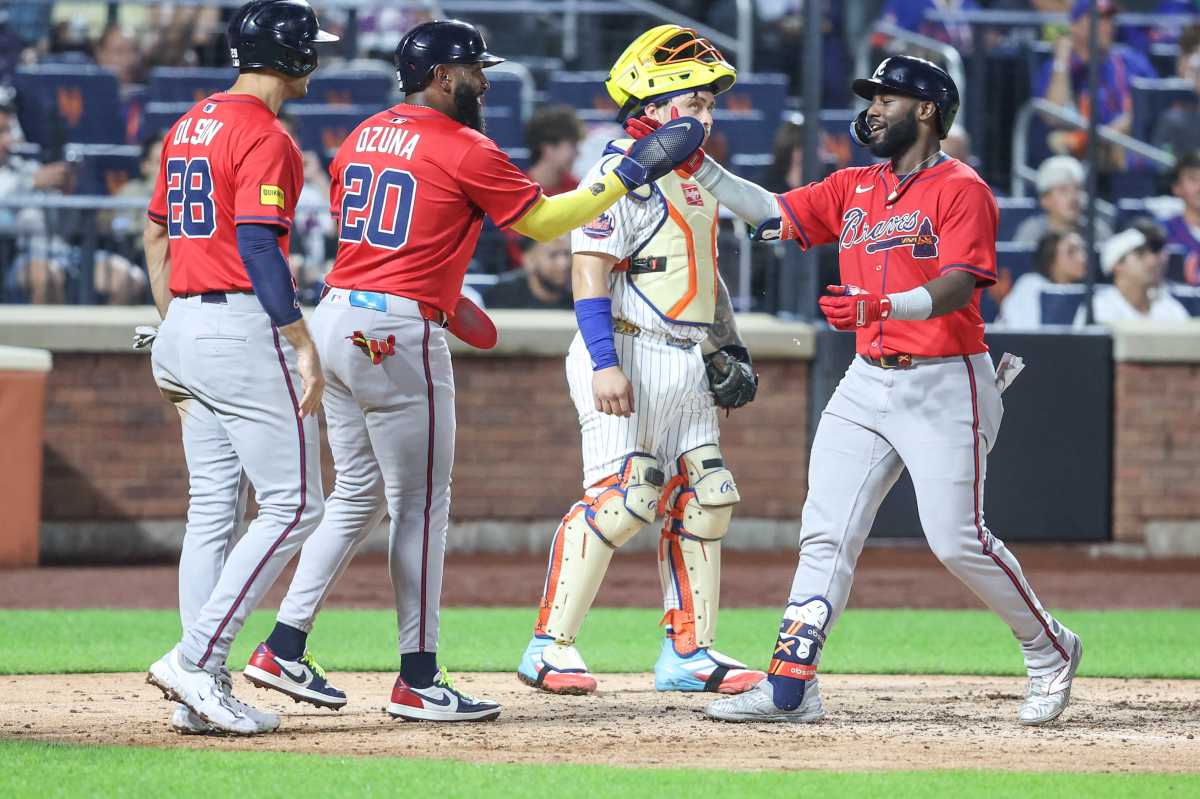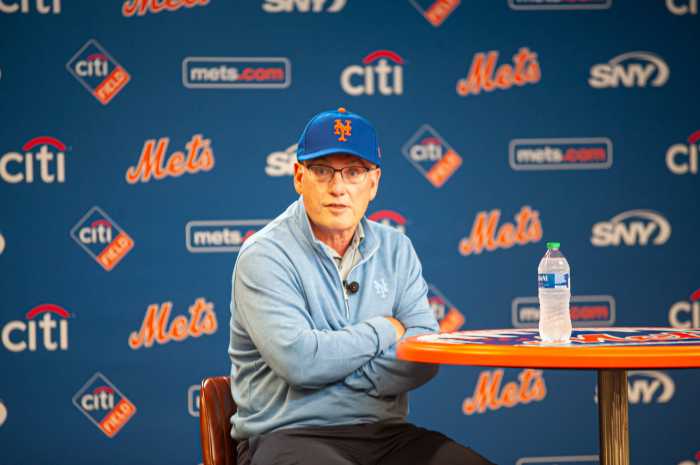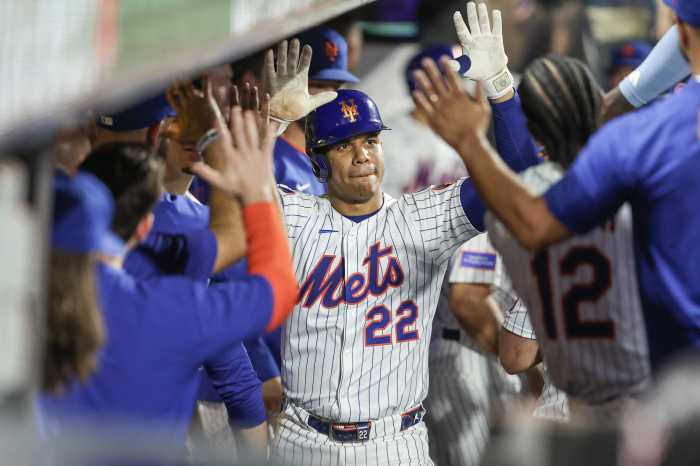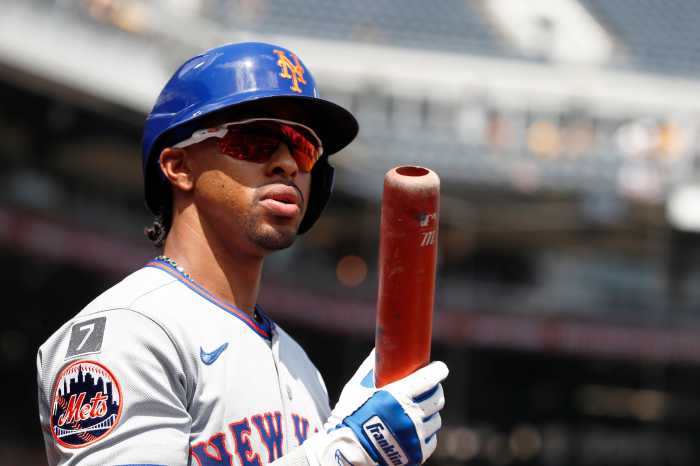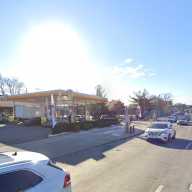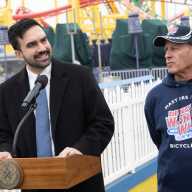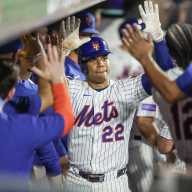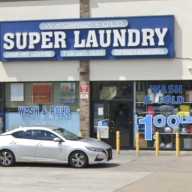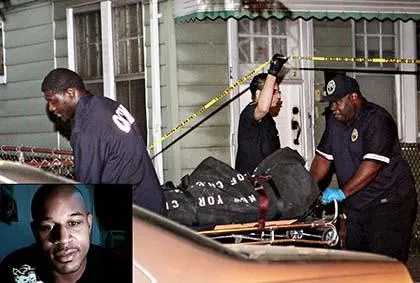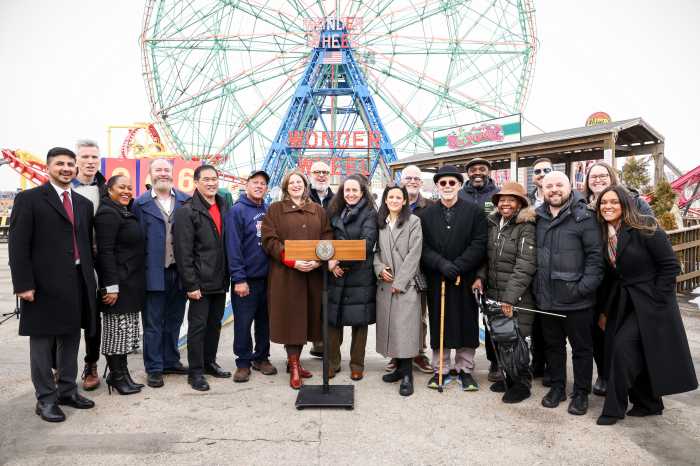QUEENS, NY — The New York Mets blew a five-run lead on Sunday, en route to a seventh consecutive loss. They blew a four-run lead on Monday, in the wake of Pete Alonso’s franchise record 253rd career home run. They rebounded, and on the back of six home runs that caused Citi Field to run out of fireworks, they stopped the hemorrhaging with a 13–5 win.
One might think, then, in the second of a three-game set against the 51-68 Atlanta Braves on Wednesday night — a club that’s underperformed this season and entered Wednesday fourth in the NL East, 18 games back of first place — they’d seek to build on Monday’s win. Their top starter, David Peterson, was on the mound. They faced Carlos Carrasco, who entered Wednesday with an ERA north of six.
That did not happen.
The Mets returned to their default settings, following a lengthy weather delay due to a severe thunderstorm. The rain only delayed the inevitable. The bats gave New York an early lead. Pete Alonso drove in two runs. Juan Soto walked and hit a home run. They left Peterson a six-run lead at the end of the second inning.
By the top of the fifth, New York trailed 9–6, and were on their third pitcher of the evening, en route to an 11–6 loss.
“They’re tough losses,” manager Carlos Mendoza said. “But you got to keep going. We got the coaches right now looking at pretty much everything, trying to figure it out, ‘How can we continue to help these guys, especially the guys from the rotation?’ Because we know the talent’s there, but we just haven’t been able to get much from them, especially this last time through.”
Wednesday’s collapse was only the latest example of a club in freefall — and out of answers.
The fourth inning pitching meltdown
Once again, a Mets starter failed to complete six innings. Peterson lasted just 3.1 on Wednesday, conceding five hits, six runs (all earned), and five walks.
It was an appalling performance, considering that Peterson has been, generally, the Mets’ lone bright spot in their lackluster starting rotation recently, that’s struggled to get through the middle innings.
“It’s frustrating,” Peterson said. “We’re not holding up our end, and we need to do better. And you know, I think that starts with analyzing the performance and then turning the page and moving on to the next one.”
Peterson had pitched to a commendable 2–1 record with a 2.15 ERA over his last six starts. Five of those starts were quality starts. He’d completed six innings in a career-high six consecutive starts, and had done so in 15 of his 22 starts this year.
In the top of the fourth inning, Peterson loaded the bases by walking Nacho Alvarez Jr., the Braves’ number eight hitter. He then walked Nick Allen — Atlanta’s number nine hitter — to bring home the Braves’ first run. Jurickson Profar connected with an outside changeup and cleared the bases with a double down the left field line to bring Atlanta within two. After Peterson walked Matt Olson, he was taken out of the game.
“He lost his strike zone,” Mendoza said. “Missing a lot arm side and the walks, especially when you’re walking the bottom line, eight hole, nine hole.”
“I was a little out of sync with the mechanics and wasn’t able to dial it back in,” Peterson said.
Peterson’s replacement, Reed Garrett, wasn’t much better. He reloaded the bases by conceding an RBI single to Marcell Ozuna and walking Sean Murphy.
Then, Garrett threw a cutter down the middle of the plate to Michael Harris II. Harris took him deep to center field to give the Braves a 9–6 lead.
By the next inning, Paul Blackburn had replaced Garrett.
Paul Blackburn’s surprise return
Blackburn was asleep in his Syracuse, N.Y. hotel room on Tuesday night, resting up for what was supposed to be a rehab start with Triple-A Syracuse on Wednesday. He woke up to a commotion at his door.
The Mets wanted him back in Queens.
Blackburn had been on the shelf since early July with a shoulder injury. But after reliever Justin Hagenman went four innings on Tuesday, the club optioned him to Syracuse. Blackburn took his place.
Blackburn, like Hagenmen the night before, was the relief pitcher who settled the game down. He pitched five innings and went the longest of the Mets’ three pitchers who appeared in the game. He allowed just one hit, two runs (both earned) and one walk. He struck out three.
“He saved our bullpen,” Mendoza said. “He was able to finish that game. Gave up two, that hanging breaking ball, but he was good, he pitched efficient, obviously. And like I said, he did his part.”
His lone error came in the top of the sixth inning, when he left a sweeper hanging over the plate to Marcell Ozuna, who hit a two-run homer to left field.
Soto, Alonso on the cusp of (more) history
It seems futile to write about the Mets’ offense after a game like this, but Wednesday’s game carried a few noteworthy moments for Mets hitters — almost exclusively confined to the first two innings.
Juan Soto reached base in the first inning with a walk. In the second inning, he put New York up 5–0 with a two-run home run. He’s now reached base safely in 11 consecutive games this month.
Soto entered Wednesday with a Major League-leading 90 walks this season, and is en route to his sixth season with 100 walks or more. He’s now 10 walks away from becoming the second player in Mets history to break the 100 walk threshold. John Olerud is the only Met to eclipse this mark, and did so in 1999.
Alonso was greeted for his first at-bat with a standing ovation and his name being chanted. He connected with a 90.3-mph sinker and lined it into center field for a two-run single.
Alonso entered Wednesday with 96 RBI, good enough for third in the majors. He’s looking to record his fourth season with 100+ RBI. When he hits that metric this year — he’s now two away after his two-run single on Wednesday — he’ll be second in Mets history, behind only David Wright, who leads the franchise with five seasons with 100+ RBI.



